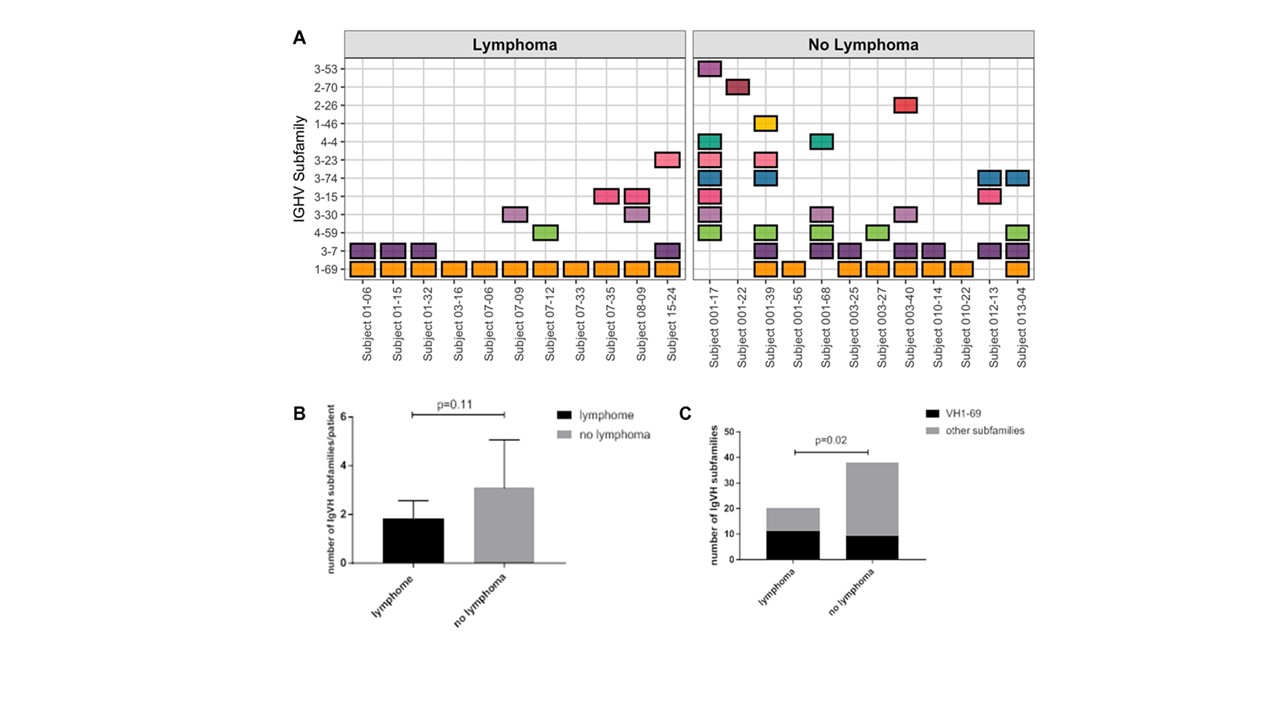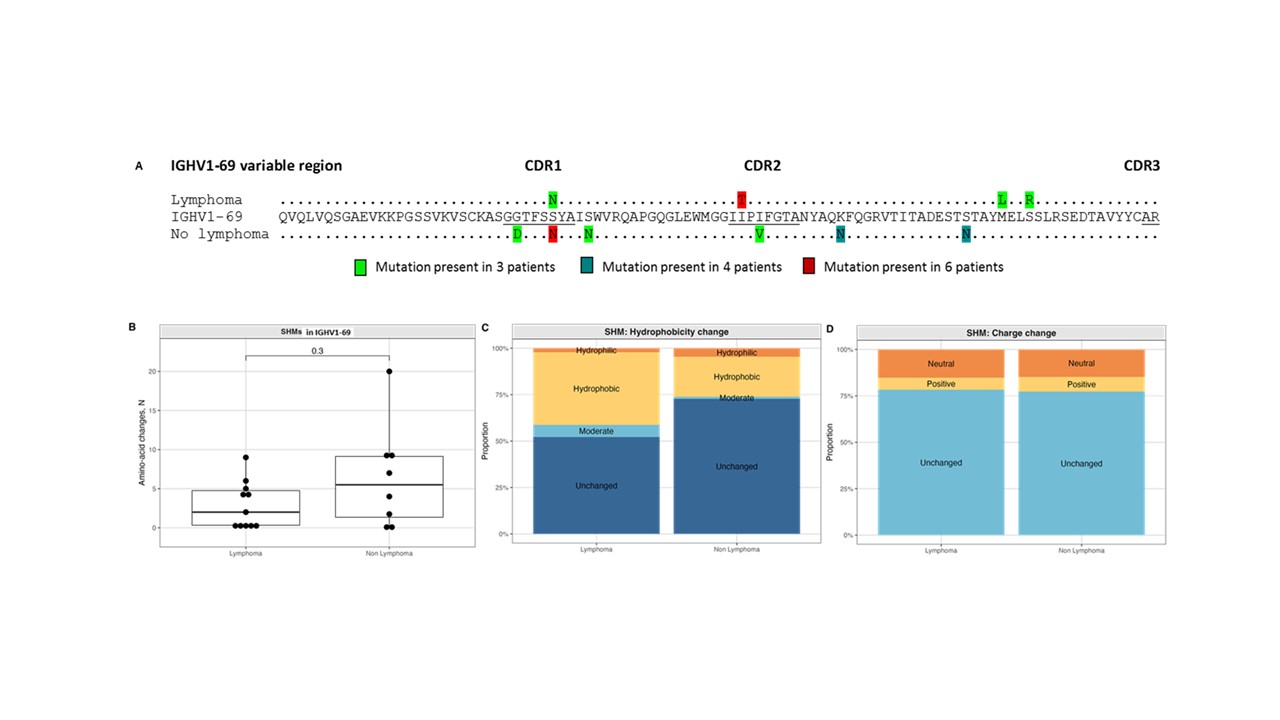Session Information
Session Type: Poster Session C
Session Time: 10:30AM-12:30PM
Background/Purpose: Sjogren’s disease (SjD) is characterized by an increased risk of lymphoma (x 10-15 compared to the general population). We and others have previously demonstrated that the presence of Rheumatoid Factor (RF) in sera of patients with SjD is a risk factor for lymphoma development. However, RF is present in 40 to 50% of the patients. Thus, the different RF clonotypes might have a different impact on the risk of evolution to lymphoma.
Our objective was to perform proteomic analysis of secreted IgM-RF in patients with SjD with and without lymphoma and to assess if a specific molecular profile of RF is associated with occurrence of lymphoma.
Methods: We included 23 SjD RF+ patients from the ASSESS cohort. Eleven had a history of lymphoma (cases) and 12 had no lymphoma (controls). Cases and controls were matched on age and sex. Purified heavy chains of serum RFs were subjected to de novo mass spectrometric sequencing. We performed the determination of the immunoglobulin heavy variable (IGHV) subfamilies and compared amino-acid sequences between cases and controls.
Results: We observed a contraction of the pool of IGHV subfamilies of the circulating RF SjD and an over-representation of the IGHV1-69 in SjD patients with lymphoma compared with patients without lymphoma (Figure 1). When focused on VH 1-69, we observed that somatic hyper mutations (SHM) tend to be less frequent in SjD patients with lymphoma. Hydrophobic substitutions were more common in SjD patients with lymphoma (Figure 2). We detected a recurrent AA substitution in SjD patients with lymphoma affecting a contact residue of the RF (I52T). Modelling data for the mutation I52T and mutation I54V in patients without lymphoma have been generated and shown that compared with germline sequence (isoleucine), the mutation to threonine (T) involves antigen binding whereas the mutation to valine (V) in non-lymphoma has no involvement.
Conclusion: This study shows that SjD patients with lymphoma have a specific molecular profile of secreted RF. This opens the way to the identification of new biomarkers for this severe complication.
To cite this abstract in AMA style:
Wang J, Armour B, Troelnikov A, Chataway T, LE GUERN V, Hachulla E, SARAUX A, Larroche C, Gottenberg J, Mariette X, Nocturne G. A Specific Molecular Profiling of Secreted Rheumatoid Factors in Sjögren’ S Disease Patients with Lymphoma [abstract]. Arthritis Rheumatol. 2024; 76 (suppl 9). https://acrabstracts.org/abstract/a-specific-molecular-profiling-of-secreted-rheumatoid-factors-in-sjogren-s-disease-patients-with-lymphoma/. Accessed .« Back to ACR Convergence 2024
ACR Meeting Abstracts - https://acrabstracts.org/abstract/a-specific-molecular-profiling-of-secreted-rheumatoid-factors-in-sjogren-s-disease-patients-with-lymphoma/


